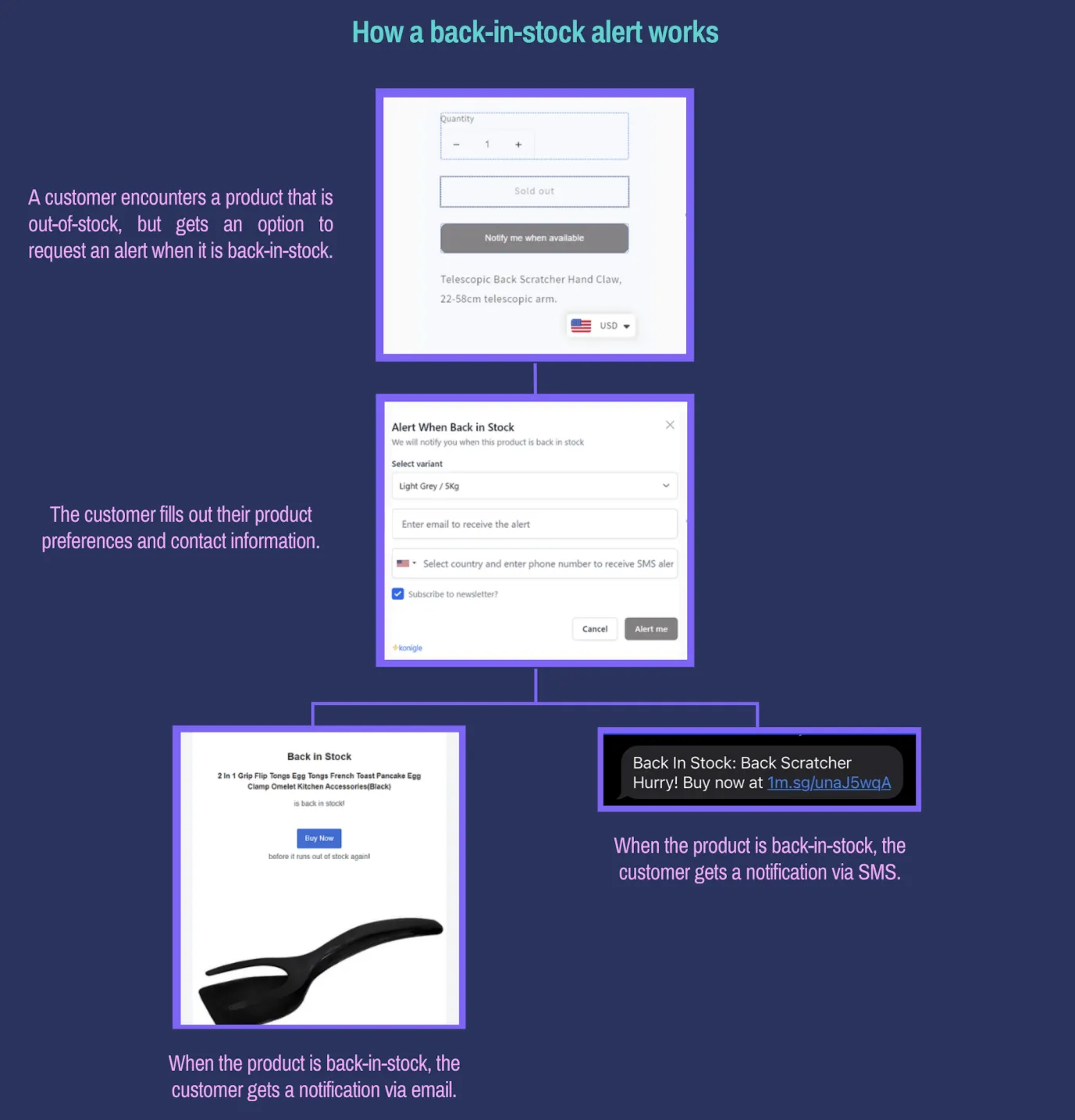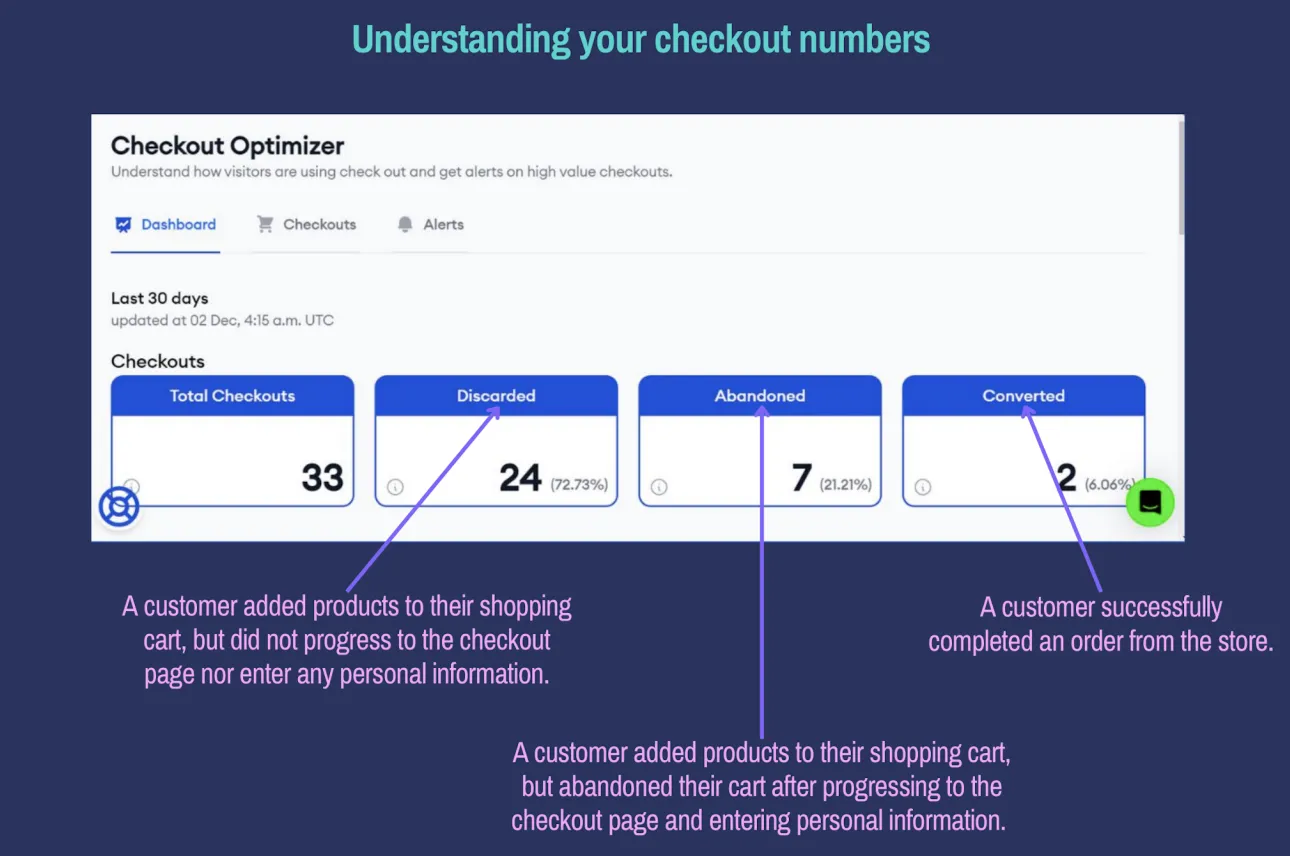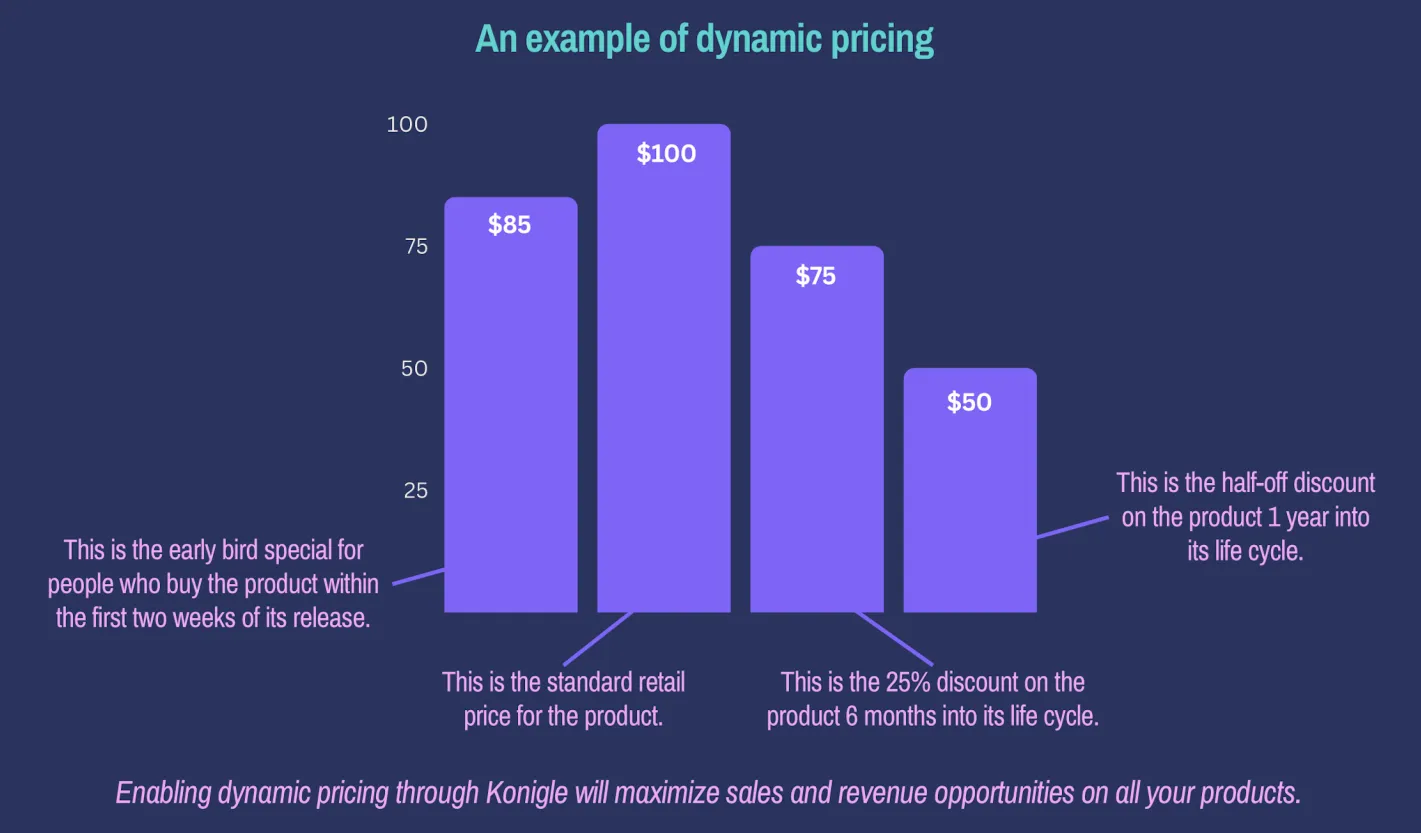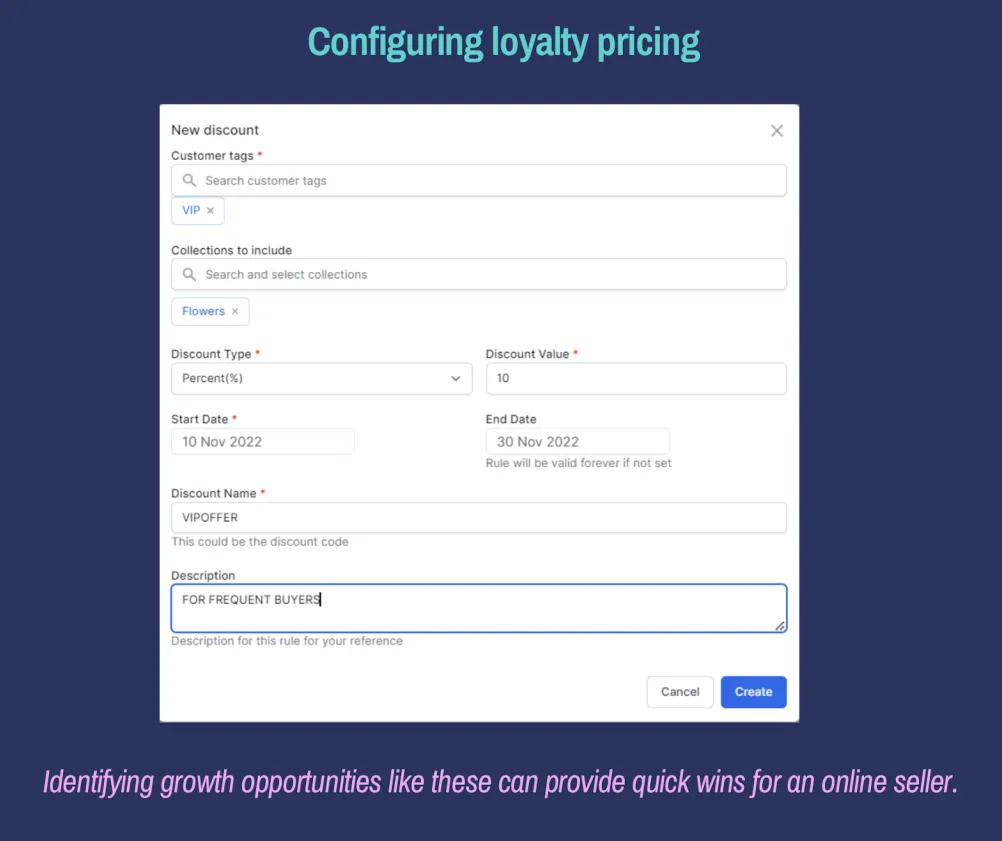September 17, 2023
Store Audit
How to grow your online business with store audits.
There needs to be a cultural change in e-commerce. When most online sellers look to improve their store performance, they look online for answers. The problem with this approach is that the vast majority of key opinion leaders, influencers, and leaders in e-commerce tend to focus on the next big thing. Their content celebrates a growth hack, tactic, or strategy that they recently learned and wish to share.
While some of these initiatives are certainly worth pursuing, it keeps online sellers trapped into a cycle: They are always chasing after a new silver bullet. Online sellers instead need to take a much more balanced approach. They need to look inwards as much as they look outwards. In other words, they need to examine how their store is performing, what issues there are, and where they can improve the most.
This kind of store audit is admittedly unsexy. It’s much more exciting to experiment with a new growth-hack rather than analyse what is happening with your store regularly and acting on it. Despite this fact, a store audit is extremely high leverage: Examining where your shop stands can be an extraordinary opportunity for growth.
In fact, for some online sellers, their first store audit can be a watershed moment: They can uncover issues that have gone unnoticed in the day-to-day operations of their business, determine how to solve them, and enjoy exponential growth from there.
But running a store audit is easier said than done, given that online shops are composed of many moving parts. This article will walk sellers through what a store audit is, why they should implement one on a regular basis, and how they can address common challenges in running them. Doing so will give online sellers a high-level overview of the business that will help them intelligently bypass competitors still hyper-focused on a grab-bag of marketing tricks and hacks.
Challenges with Store Audits
Online sellers are like anyone else. We can be guilty of looking for information that confirms our pre-existing beliefs. For example, we may look at our website dashboards and point to the fact that page views are growing rapidly as a sign that the business is doing well. This kind of metric is a vanity metric. While they make us feel good, they do not necessarily move the needle for sales or even correspond to any meaningful profit. The business that is experiencing an uptick in page views could be getting traffic from customers looking for wedding rings, even though they sell gymnastic rings.
Online sellers should not fall into the trap of falling for vanity metrics. What they should instead focus on is actionable intelligence. Keith B. Carter, an expert in data-driven decision making (DDDM) who advises companies on the strategic use of data to deliver results, wrote a book explaining actionable intelligence. In his book, "Actionable Intelligence: A Guide to Delivering Business Results with Big Data Fast!" he mentions having end-to-end visibility of business data in an actionable way delivers dramatically improved business performance.
While online sellers will tend to focus on all four types of analytics, there is a major difference between typical sellers and the best ones. Typical sellers tend to focus only on descriptive, diagnostic, and predictive analytics, while the most successful use those as a springboard for prescriptive analytics.
Actionable intelligence can only be discovered if online sellers look to their stores with a neutral perspective rather than searching only for positive signs. Doing so will provide several key benefits for online sellers.
What is a store audit?
Store audit is the process of analyzing store data to assess the health of a retail store, whether online or offline. Traditionally, this process is done manually by store staff or a freelancer once every few months. With Konigle's store audit tool, the process of a Shopify store audit can be automated for online stores and done every week or on demand. Konigle also includes built-in tools that online stores can use to fix problems flagged by store audits.
Why run a store audit?
- Identify critical issues
- Identify trends
- Identify growth opportunities
Let's breakdown each one of these benefits one by one. In the day-to-day operations of running your store, online sellers may be so focused on firefighting problems that arise that they overlook underlying issues, which may be every bit as critical. For example, perhaps several of your products are out-of-stock but still regularly visited by customers in search of that item. This is a critical issue as it represents lost sales: Every person who visits that page in hope of finding what they need will now bounce out to a competitor website. A store audit can reveal issues like these to recapture this lost revenue.
When online sellers work "in" their business rather than "on" it, it's also easy to lose sight of short-term trends. Imagine an online store that sells fitness products. Perhaps a particular product is selling exceptionally well due to a new fitness trend. Identifying that this item is not just an anomaly but part of a wider consumer demand for the broader category is important for the online store. Then they can buy more items in this category to maximise revenue rather than lose out to more forward-thinking competition. Store audits, in short, can help online sellers keep pace with industry trends as well as those unique to their own shop.
Finally, store audits can identify unrealised growth opportunities. For example, less than 20% of shoppers who purchase from a store were found to return again for an additional purchase, according to aggregated data from Konigle's research. While some stores may do better than this benchmark, many as well do worse. Looking at your shop's analytics via store audit will help determine not only what you can improve but also suggest ways on how you might be able to do so. A store with a low retention rate may be well served by a loyalty program, for instance, which will inspire loyalty among first-time customers.
By tuning your attention to how far your online shop has come, store audits also guide online sellers on which trail to blaze next.
Improving store audits
When analysing an online store's metrics, online sellers should have three main goals: They should seek to identify critical issues, trends, and opportunities. Orienting their store audits around these will ensure that the process is useful rather than a token exercise.
Identifying critical issues to fix
A critical issue in an online shop is one that prevents people from transacting. These are fires that online sellers must put out. Because these issues are preventing transactions, they do represent low-hanging fruit: By addressing them, you restore business. Examples of critical issues would include a misconfigured payment gateway, a product link that is broken, or a product that is out-of-stock.
Online sellers could fix each issue manually. For the out-of-stock product, for example, they could try to replenish inventory as fast as possible through the appropriate supplier. But this is not a fix, only a band-aid. For any kind of critical issue, online sellers should look for an automated solution that will address all future instances of the problem.
For an out-of-stock product, online sellers should implement a back-in-stock alert. This is how it works.
The back-in-stock alert, in other words, solves the issue at a scale. Now whenever the online store runs out of inventory, which is bound to happen at some point no matter how well they plan, the customers will not walk away empty-handed. Instead, they will leave satisfied, knowing that the business will automatically contact them as soon as the product gets back in stock. The customer solves this need, and the online store keeps the business. Every critical need that a business needs should be dealt with through this kind of automation.
Some online sellers may be skeptical that all the critical issues they uncover in a store audit can be addressed with technology. But it's true. The growth of e-commerce means that there is an entire ecosystem of providers available to give online stores the tools they need to succeed.
Online sellers just need to be judicious in seeking them out, especially those designed for common critical issues. One such example are abandoned checkouts, which should be distinguished from discarded checkouts.
Customers with discarded checkouts are not yet ready to buy. They may still be comparing prices for their desired items or even using their shopping carts as a wishlist. Customers with abandoned checkouts, however, are ready to buy but, for some reason, opted not to.
Like out-of-stock products, abandoned carts are a critical issue that online sellers should address through technology, or technically, multiple technologies. That's because the best solutions for abandoned cart recovery will be multi-touchpoint. Rather than only reaching out to these customers over email, only over SMS, or only via push notifications, abandoned cart recovery should work across all three mediums. This maximises the chance of communicating with the customer when he is most responsive, which will get him to complete the purchase.
Once any critical issue is found in a store audit, online sellers should use technology to handle them comprehensively.
Identifying short-term trends to act on
There are two types of trends that online sellers should look for. The first are industry-wide trends that they can capitalise on. An example of this is the fitness shop that discovers high-selling products, which is actually indicative of a fast-growing category they should expand. These trends amount to having an ear to the ground for taste-making: What are shoppers now getting into that your online store can address?
Such trends should never be overlooked. Another equally important type of trend are those that are unique to your store. There may be a pattern that is worth noting and acting upon. A sudden drop in your online store's conversion rate, for example, should not be interpreted as part of the cyclical nature of e-commerce. Online sellers should take this figure as actionable intelligence by rigorously examining potential causes.
With a falling conversion rate, there may be several possible issues, which online sellers should examine one by one. One possibility is a change in the competitive landscape. Online sellers should not look at their prices as a fixed attribute they set, like a website URL. Prices should instead be dynamic and capable of changing to market conditions.
Using automated price monitoring tools is not only more efficient but also higher level. Instead of focusing on the relative price of individual products, online sellers can quickly glean whether different categories or even the entire catalog is underpriced or overpriced. Based on this actionable intelligence, the online seller can adjust prices accordingly to mitigate the drop in conversion.
In some cases, the conversion drop may not be a result of the competitive landscape but due to your own pricing. A shopper may be hesitant to pre-order a product at full retail price or buy a product a year after it was released with still no discount. Pricing should not be static like this - it should adjust to market demand so as to maximise customer interest and this sales.
This is known as dynamic pricing. Here is an example of dynamic pricing in action.
Manually configuring dynamic pricing would be difficult for a handful of products and next to impossible as your catalog grows in size. The best course of action is to use a tool for dynamic pricing, which enables online sellers to adjust prices based on different attributes, such as inventory levels or time elapsed since the product's release. Implementing dynamic pricing will help mitigate any drop in conversion rate that you identified in your store audit.
Once a short-term trend is identified in a store audit—whether relevant to the entire industry or just your store—online sellers should systematically capitalise on it with different tech tools.
Find profitable growth opportunities
The third item that online sellers will want to look for in a store audit are growth opportunities. While there are different business frameworks that get entrepreneurs to think of opportunities, such as a SWOT analysis, a store audit is especially helpful because they identify areas that are already working but can still improve. From this vantage, entrepreneurs do not have to reinvent the wheel but simply optimize different initiatives.
One common area is returning customers. The online store may already be successful in that it's getting customers, and some of them are coming back. It's only a matter of getting more of them to come back, which can be done by providing proper incentives. One of the most common is a loyalty program, which provides rewards for customers for repeat purchases.
Automating your store audits
Manually running a store audit will be difficult and time-consuming. Online sellers are underresourced, and spending significant resources on this kind of analysis will be a burden. Online sellers should thus turn to an automated tool for store audits, such as the one provided by Konigle.
These tools help online sellers with the analysis, translating metrics and numbers into plain text issues to fix and recommendations to implement. Deploying an automated tool for store auditing ensures that not only are they performed quicker, but that online sellers get to incorporate their best practices quicker too. In this way, a store audit is an accelerated path to problem-solving and, in turn, more profits.
Takeaways
- Store audits: While much of the culture surrounding e-commerce is forward-looking, online sellers need to pause and look back through a store audit, which involves regularly examining the key metrics of the business.
- Vanity metrics: When performing a store audit, online sellers should avoid falling for vanity metrics, which are figures that may be growing but have little correlation to the actual growth or success of your online store, such as page views.
- Actionable intelligence: While online sellers should focus on all types of metrics in a store audit, including descriptive, diagnostic, and predictive analytics, they should pay particular attention to prescriptive analytics, which will yield actionable intelligence they can use to grow their business.
- Critical issues: When an online seller uncovers a critical issue, like an out-of-stock product, they should seek to solve the underlying issue at scale through technology, such as a back-in-stock alert that will help address similar issues in the future.
- Short-term trends: Trends can apply industry-wide or only to your online store, such as a drop in conversion rate that may be due to underpricing, overpricing, or a lack of dynamic pricing—all of which should again be capitalized upon through technology.
- Growth opportunities: Store audits can uncover growth opportunities, which are promising because it's not about solving a problem from scratch but improving something that is already working to a degree, such as the rate at which a business gets returning customers.
- Store audit automation: Because manually auditing an online shop would be a cumbersome and resource-intensive process, online sellers can turn to trusted tools that help them automate this, such as Konigle's store audit.





